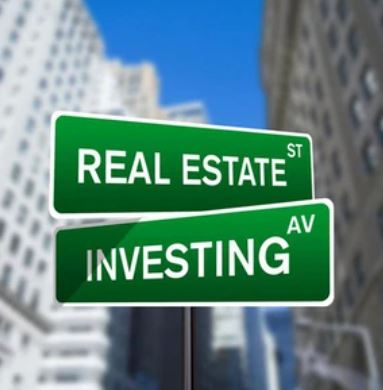
The current health concerns related to COVID-19 pose circumstances the likes of which none of us have ever seen. Besides a health scare is there any other force that could practically shut down the US economy for multiple months? There is certainly a great deal of uncertainty.
What is clear is that the longest period of sustained economic expansion in U.S. history is over. Unfortunately, unemployment has hit its highest level since the great depression. These unique times will teach us many things. What will they teach us about real estate investing?
I’ve outlined 6 questions for real estate investors to contemplate when considering how to best navigate and thrive in the evolving new reality.
Just How Resilient Is Real Estate Investing As A Way To Earn A Living & As A Wealth Building Strategy?
We will learn how the various investing models fare when they are each put to the test in these tough times. From the more passive investment methods such as REIT’s and others’ syndications to the more active methods such as Airbnb we will see how the risk reward spectrum manifests across wealth building models. We will learn how resilient the housing market is as a whole. Specifically, how will the buy and hold model hold up over the next 6 to 12 months and beyond? What will be the best way to invest in real estate going forward?
How Will Geographic Market Desirability Change?
Successful real estate investors follow demand. The nature of a pandemic dictates that urban areas, where population density is higher, are more susceptible to disruption and illness. Do people shift their thinking about wanting to live in highly populated areas? Is there increased desire to live in smaller cities and/or more remote areas?
How Does The Pandemic Affect Housing Type And The Rent vs Buy Decision?
Will the pandemic affect the rent vs buy decision? Do those who currently rent want to now own so they can have more control over their living quarters as potential future shelter in place orders seep into the american psyche? Or do people want to continue to rent so they have more flexibility to move if necessary? If folks continue to want to rent, what type of dwelling will they be attracted to? Are people going to be less likely to want to live in large multi-family developments in close quarters with others? Will they be more apt to want to live in a detached home with more space and natural social distancing? The answers to these questions will be a major factor in driving both real estate values and rental rates across asset types.
Is Remote Working In Mass Here To Stay And How Does This Affect Where People Want To Live?
The pandemic has forced many companies to adapt and support remote work forces. There are certainly advantages to this for both companies (less need for physical office space/real estate) and employees (less time commuting). How comfortable will employees feel with public transportation with escalated health concerns? Do people move closer to centralized places of employment (city centers) to avoid public transportation and have the option to walk to work or do they take advantage of the remote working trend and move farther away from city centers to social distance. Housing demand may shift based on how this plays out.
How Does a Pandemic Affect The Macroeconomic Landscape?
Housing prices and rental rates are explicitly reliant on the macro-economic climate. The government has initiated several aggressive measures to help support the economy. From extending potentially forgivable credit to small and large businesses, to significantly lowering interest rates, to increasing the money supply by buying various types of financial instruments (Quantitative Easing), the government aims to create as much short term stability as possible. This all makes sense for the short term to prevent chaos but what are the long term effects? Will the measures be enough if the pandemic lingers on? Will inflation eventually skyrocket? (remember, inflation can be the friend of real estate investors) Does a debt bubble emerge and eventually burst and what would this do to people and the overall economy? These are all questions that factor into the risks and potential rewards for real estate investors.
Will There Be Increased Opportunity For Investors?
Historically, market turmoil has led to unique acquisition opportunities. This was the case during the Great Recession and the years that followed where the circumstances proved ripe for obtaining real estate assets . Real estate investors win on the purchase. Will there be massive buying opportunities because of the economic shifts?
Summary
Accurately predicting how this pandemic will play out and how it will affect real estate investing is challenging. Yet the fundamentals of the real estate investing game remain the same. Where is the supply/demand dynamic favorable and can you make the numbers work there? Are you very clear on what investing model you will pursue and can you build a team to help execute it? Wise investors will continually ask the 6 questions outlined above, assessing how the potential answers and outcomes affect the fundamentals.